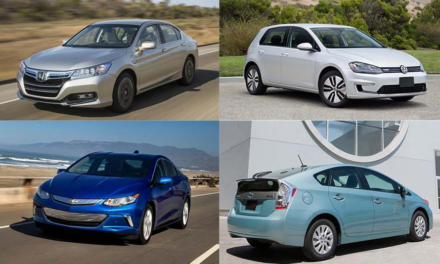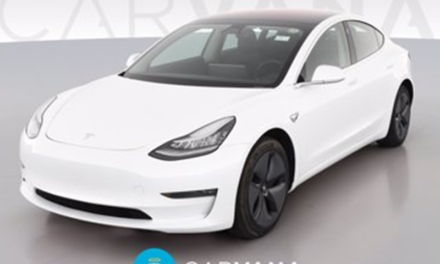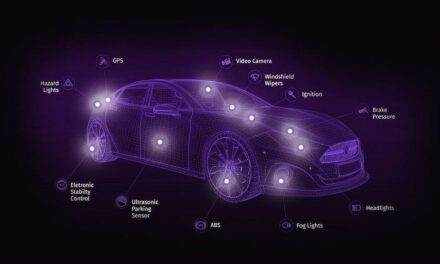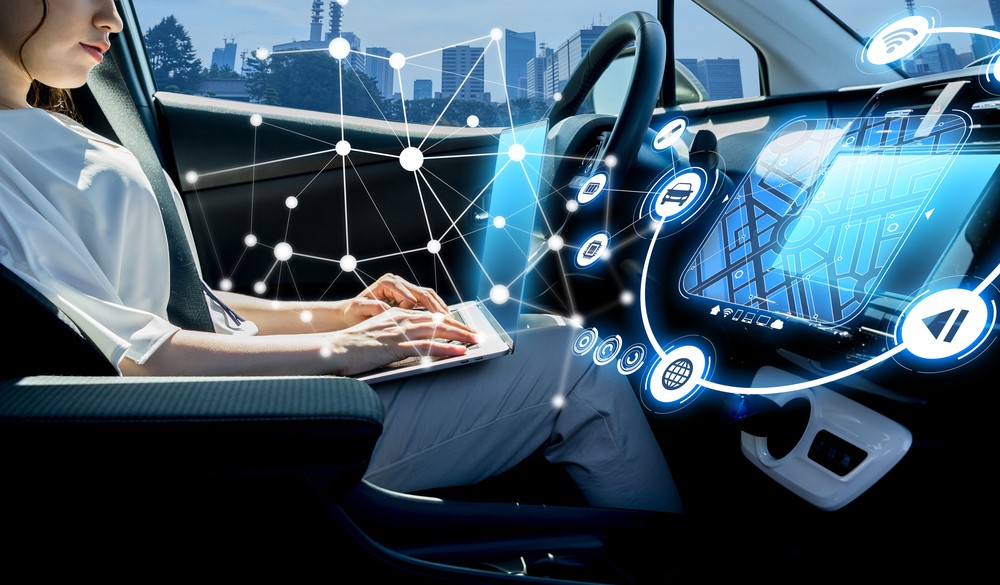The global automotive industry is anticipated to witness tremendous growth over the next few years because of the ever-growing need for fully self-driving cars, widespread adoption of advanced automotive services, increasing acceptance of artificial intelligent car systems, and increased government investments and initiatives towards fully automated and connected cars. Automotive industry experts believe that automotive artificial intelligence will not only revolutionize the industry but will also be a major enabler of driver safety, automobile fleet management, vehicle data management, ride supervision, and more. They believe the combination of artificially intelligent cars, highly customized and networked artificial intelligent mobile devices, and highly robust automotive systems will create a new class of car owners. Automotive industry experts are optimistic about the prospects for automotive artificial intelligence, however they admit that full automation will take time. They also opine that current technologies are best suited for the deployment of automotive artificial intelligence.
According to automotive industry experts, once fully automated vehicles reach the market, human drivers will no longer be required for the operation of these vehicles. The companies providing vehicles will have complete control over their fleets of vehicles and will ensure optimal levels of productivity and efficiency. Automotive artificial intelligence will provide drivers with the most up-to-date information about the condition of the vehicle, in order to improve the reliability and operational efficiency of these vehicles. Moreover, customers will get the best experience when they select vehicles programmed with intelligent navigation and safety systems from a reputable company.
Self-driving cars will reduce the overall cost of ownership for the automotive industry and will also facilitate the overall productivity of the industry. These vehicles will be capable of managing both day and night traffic, will be able to avoid accidents, and will also be able to park themselves. Since self-driving cars will not need any steering or brake assistance, the total cost of operating an autonomous vehicle will be dramatically reduced by the adoption of this technology into the automotive industry.
Automotive artificial intelligence systems will also benefit consumers in terms of increased safety. Currently, there are several different self-driving technologies in development to address the safety concerns of current drivers. However, many of these technologies are still very much in the research stages and there is still considerable doubt as to whether they will meet current safety standards. As more time goes by, artificial intelligence driven cars will be available for consumers to purchase and will enable them to experience the safety benefits of this technology without having to put in too much effort.
Another application of artificial intelligence is across the supply chain. Supply chain performance is often hampered due to various constraints in the different areas of operations across the supply chain. For example, manufacturers do not have access to detailed information regarding the production process of parts and materials across different vendors and distributors. Automotive artificial intelligence systems will enable manufacturers to obtain critical data across all of these components, enabling them to make informed decisions about the manufacturing process of their vehicles. This will, in turn, improve the efficiency of the entire supply chain, which will, in turn, improve overall customer satisfaction.
Automotive artificial intelligent vehicle telematics systems will also benefit consumers in terms of improving fleet management. As more vehicles are equipped with sensors, the ability to fine tune the vehicle’s performance is enabled. By combining diagnostic tools with onboard software, ad-driven systems will be able to map out the performance of a vehicle in real time and recommend specific corrective actions that can be taken to improve fleet performance. In addition to this, the improved fleet management will enable companies to reduce costs associated with vehicle maintenance and preventive maintenance. As well as being able to fine tune vehicles for optimal performance, vehicle repairs and care can also be made easier by integrating these processes across multiple vendors.
Consumer adoption of this technology will continue to grow as the automotive industry looks to apply a-driving technology to their vehicles in order to provide customers with a more complete mobility experience. By creating more convenient routes and locating vehicles more effectively, air-driven systems can improve customer satisfaction by reducing unnecessary waiting time and providing an efficient service. The automotive industry is one of the largest buyers of human capital, so the adoption of this new technology could prove to be a major step forward for workforce training programs. Automotive employers may see an immediate rise in employee productivity once their companies are able to fully utilize the benefits that come with using these new technologies. Furthermore, self-driving vehicles will allow employees to work more efficiently away from the workplace, thus creating more business for the employer.
Automotive air-technology is the wave of the future for the automotive industry. By utilizing cutting-edge technology that is enabled by sophisticated deep learning software, engineers and technicians can anticipate problems before they occur and design solutions that minimize downtime. Companies that are currently using air-driven systems can look forward to increased profitability as well as greater levels of company morale by implementing this software into their business. Automotive artificial intelligence may soon revolutionize the way in which we do business and how we do it on the road. If you’re not using zenith today, you’re going to miss out on one of the most important technologies of our time.











Thank you for the auspicious writeup. It in truth used to be a amusement account it. Glance complex to far delivered agreeable from you! However, how can we be in contact?
I thought it was going to be some boring old post, but I’m glad I visited. I will post a link to this site on my blog. I am sure my visitors will find that very useful.
Like the way you’ve outlined things. Easy to follow. Not cluttered.
I think other website proprietors should take this web site as an model, very clean and great user pleasant style and design .
Thanks For This Blog, was added to my bookmarks.
Its wonderful as your other blog posts : D, regards for putting up.
Sometimes, the sheer magnitude of the information seems overwhelming.
Hello there, just became aware of your blog through Google, and found that it is truly informative. I am going to watch out for brussels. I will appreciate if you continue this in future. Lots of people will be benefited from your writing. Cheers!
Aw, this was a very nice post. In idea I wish to put in writing like this moreover taking time and precise effort to make an excellent article! I procrastinate alot and by no means seem to get something done.
Howdy, a helpful article for sure. Thank you.
We can see that we need to develop policies to deal with this trend.
I love what you’ve created here, this is definitely one of my favorite sites to visit.
I’ll check back after you publish more articles.
It’s a comprehensive, yet fast read.
Great blog here! Additionally your website rather a lot up very fast! What host are you the usage of? Can I get your associate link for your host? I desire my website loaded up as fast as yours lol
I think this is among the most important information for me. And i’m glad reading your article. But should remark on some general things, The website style is ideal, the articles is really nice : D. Good job, cheers
Good website! I truly love how it is easy on my eyes and the data are well written. I’m wondering how I could be notified whenever a new post has been made. I’ve subscribed to your RSS which must do the trick! Have a great day!
I’m partial to blogs and i actually respect your content. The article has actually peaks my interest. I am going to bookmark your site and preserve checking for new information.
Your resources are well developed.
Magnificent beat ! Can I be your apprentice? Just kidding!
I just added this to my favorites. I truly love reading your posts. Tyvm!
That’s some inspirational stuff. Never knew that opinions might be this varied. Thanks for all the enthusiasm to supply such helpful information here.
Assume you are doing good linking to position you on the first pages of search engines.
Hiya, I’m really glad I have found this info. Today bloggers publish only about gossips and web and this is really irritating. A good web site with exciting content, that’s what I need. Thanks for keeping this web-site, I will be visiting it. Do you do newsletters? Cant find it.
The Danube Delta Biosphere Reserve has the third largest biodiversity in the world (over 5,500 flora and fauna species), exceeded only by the Great Barrier Reef in Australia and the Galapagos Archipelago in Ecuador.
Nice read, I just passed this onto a colleague who was doing some research on that. And he just bought me lunch as I found it for him smile Therefore let me rephrase that: Thank you for lunch!
You are a very smart person! 🙂
Substantially, the post is really the best on this laudable topic. I concur with your conclusions and will eagerly watch forward to your future updates.Just saying thanx will not just be enough, for the wonderful lucidity in your writing.
Your thing regarding creating will be practically nothing in short supply of awesome. This informative article is incredibly useful and contains offered myself a better solution to be able to my own issues. Which can be the specific purpose MY PARTNER AND I has been doing a search online. I am advocating this informative article with a good friend. I know they are going to get the write-up since beneficial as i would. Yet again many thanks.
I do believe your audience could very well want a good deal more stories like this carry on the excellent hard work.
I feel that is among the so much significant info for me. And i am satisfied studying your article. However should commentary on some basic issues, The site style is ideal, the articles is in reality excellent : D. Excellent activity, cheers
Its just like you read my thoughts! It’s like reading about my family.
Great write-up, I am a big believer in placing comments on sites to inform the blog writers know that they’ve added something advantageous to the world wide web!
I wanted to check up and let you know how, a great deal I cherished discovering your blog today. I might consider it an honor to work at my office and be able to utilize the tips provided on your blog and also be a part of visitors’ reviews like this. Should a position associated with guest writer become on offer at your end, make sure you let me know.
I am glad to be a visitor of this perfect blog !, appreciate it for this rare info!
I like to spend my free time by scanning various internet resources. Today I came across your website and I found it has some of the most practical and helpful information I’ve seen.
Very fine blog.
Your posts provide a clear, concise description of the issues.
Thanks for another great post. Where else may anybody get that type of info in such an ideal way of writing? I have a presentation next week, and I’m at the search for such information.
I believe this web site has some really wonderful info for everyone : D.